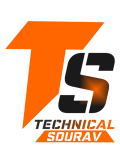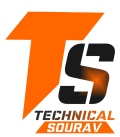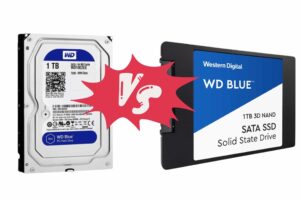The dilemma of 1TB SSD vs. 1TB HDD has tormented computer users for years. The technology underpinning storage devices is growing at an astonishing rate, making it increasingly difficult to stay up. We’ve gone a long way from the days of floppy discs and CDs, and today we have choices like SSDs and HDDs that are lightning fast. Choosing the proper one may make a significant impact in your entire computing experience, and we’re here to guide you through the process.
Nobody wants to be kept waiting for their computer to start up or a program to launch, let’s face it. Time is money in today’s fast-paced world, and every second matters. That’s where the 1TB SSD comes in; with its lightning-fast performance and rapid load times, you’ll never have to twiddle your thumbs while your computer catches up. Furthermore, because there are no moving components, the chance of mechanical failure is much minimized, providing you with a sense of security and peace of mind.
But wait a minute – before you rush out to get an SSD, don’t forget about the good old HDD. It may not be as quick as its SSD equivalent, but it has its benefits. For starters, it is far less expensive, making it a good choice for individuals on a tight budget. And, because to its large storage capacity, you won’t run out of space very soon. Plus, who doesn’t enjoy a little nostalgia? Hearing the soothing hum of a rotating hard drive is endearing.
In this article, we’ll look at the differences between a 1TB SSD and a 1TB HDD, considering the benefits and drawbacks of each. We’ll break everything down so you can make an informed decision about which storage device is right for you. And who knows, we could even crack a joke or two to keep things lighthearted.
Table of Contents
- Introduction
- What is a 1TB SSD?
- What is a 1TB HDD?
- Speed and Performance
- Durability and Reliability
- Price and Affordability
- Noise and Power Consumption
- Compatibility and Portability
- Storage Capacity
- Boot Time and Loading Speed
- Gaming and Multimedia
- Data Transfer and Backup
- Operating System and Applications
- Encryption and Security
- Final Thoughts
- FAQs
Introduction
Before we get into the specifics of the 1TB SSD vs. 1TB HDD comparison, let’s first define what these storage devices are and how they function. It may appear to be a dull subject, but trust me when I say it’s important to know. After all, you don’t want to be the person who tells your friends that your computer has a “solid-state hard drive” and then looks foolish when they correct you.
What is a 1TB SSD?
In layman’s words, a Solid State Drive (SSD) is the Usain Bolt of storage, quick and efficient. It is a non-volatile storage device that stores and retrieves data using NAND-based flash memory. SSDs, unlike Hard Disc Drives (HDD), contain no moving components. Yes, you read that correctly: no more spinning discs, whirling sounds, or waiting for your computer to load up. SSDs become quicker and more dependable as a result, with lightning-fast data access and transfer rates.
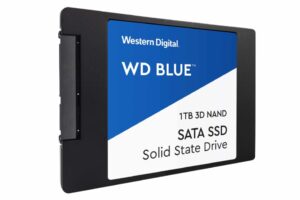
SSDs are the preferred storage medium for gamers, multimedia professionals, and anybody who desires a fast and responsive computer. If you place a premium on speed and performance, an SSD is the way to go.
What is a 1TB HDD?
A Hard Disc Drive (HDD) is a long-standing storage device. It reads and writes data on a rotating disc. HDDs are well-known for their large storage capacities and low cost. They range in size from a few hundred gigabytes to several terabytes. Although HDDs are slower than SSDs, they are still popular among those who want a large amount of storage capacity for data, documents, and multimedia information.
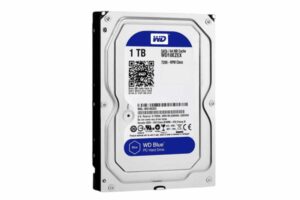
Indeed, some users utilize numerous hard drives in a RAID arrangement to boost storage capacity and redundancy. If you want to keep a vast collection of music, movies, or games, an HDD may be the way to go.
Speed and Performance
The speed and performance of SSDs and HDDs varies significantly. SSDs, as previously stated, are quicker than HDDs owing to the lack of moving components. This implies that SSDs can nearly immediately read and write data, resulting in a speedier overall computer experience. Consider being able to open your favorite game or program in seconds rather than having to wait for lengthy loading periods. HDDs, on the other hand, feature spinning discs that create data access delays, leading in slower boot times and loading rates. SSDs are the way to go if you’re a busy individual who doesn’t have the patience to wait.
Durability and Reliability
SSDs are extremely durable and reliable because they lack moving parts that might wear out or fail over time. This makes them excellent for clumsy individuals like me! SSDs, unlike HDDs, are shock and vibration resistant, which means you won’t lose your important data if you drop your laptop or inadvertently bump it against something. With an SSD, you may breathe a sigh of relief and keep working without interruption.
HDDs, on the other hand, are fragile flowers that require additional care and attention. They are susceptible to physical damage such as drops, bumps, and vibrations, which can result in data loss. This is especially aggravating if you have critical data saved on your HDD and it unexpectedly fails due to physical damage. So, if you’re often on the go or have a tendency to be clumsy, an SSD could be the ideal solution for you.
Price and Affordability
When you’re on a tight budget, pricing becomes an important consideration when picking on a storage device. HDDs are like that one buddy who is always willing to split a restaurant bill – they provide more storage capacity for less money. SSDs, on the other hand, are like that fancy restaurant your buddy recommends: it’s a little costlier, but the cuisine is worth every cent. SSDs are more expensive than HDDs, but they provide quicker speed and greater durability, making them an excellent alternative for anybody looking for the greatest performance and willing to spend a little more.
Noise and Power Consumption
Indeed, while deciding between SSDs and HDDs, noise and power consumption are key elements to consider. SSDs are absolutely quiet and create no noise since they include no moving components. They also consume less power than HDDs, which can be an important benefit for laptop users looking to maximise battery life.
HDDs, on the other hand, feature spinning discs that generate noise and vibration, which might be annoying for certain users. Furthermore, they require more power than SSDs, which might result in higher electricity bills and lower laptop battery life.
So, if you want a quiet and energy-efficient computing experience, an SSD may be the superior choice. However, if you want a large amount of storage capacity and don’t mind a little noise or increased power consumption, an HDD may be the most cost-effective option.
Compatibility and Portability
SSDs and HDDs are both compatible with the majority of PCs and gadgets. SSDs, on the other hand, offer an advantage in terms of portability because they are smaller, lighter, and more compact than HDDs. This makes them more portable and suitable for use in laptops and other portable devices. HDDs, on the other hand, are bigger and heavier, making them less portable and more suited for usage in desktop computers or fixed devices.
Storage Capacity
That’s an excellent approach to summarize the compatibility and portability differences between SSDs and HDDs. Both storage devices are compatible with the majority of computers and devices, however SSDs have a mobility advantage due to their smaller and lighter form factor, making them ideal for usage in laptops and other portable devices. HDDs, on the other hand, are bigger and heavier, which makes them less portable and more suited for usage in desktop computers or stationary devices.
Boot Time and Loading Speed
SSDs, as previously stated, are substantially quicker than HDDs in terms of boot time and loading speed. Because SSDs lack moving parts, they may boot up practically fast and load programs swiftly. HDDs, on the other hand, might take longer to start up and load apps due to their reliance on spinning discs. This might be a problem for folks who need a computer that is fast and responsive.
Gaming and Multimedia
SSDs are in high demand among gamers and multimedia professionals due to their exceptional speed and performance. Because the ability to swiftly load games and multimedia programs is critical for a seamless and pleasurable gaming or multimedia experience, SSDs are the storage device of choice for such jobs. Due to their slower performance, HDDs, on the other hand, may struggle to keep up with the high demands of current games and multimedia programs.
Data Transfer and Backup
Both SSDs and HDDs can handle data transmission and backup requirements. However, when it comes to data transmission, SSDs outperform HDDs, which is especially advantageous when working with huge files. Furthermore, because they are less prone to physical damage, SSDs are more trustworthy than HDDs for data backup.
Operating System and Applications
Both SSDs and HDDs are compatible with the majority of operating systems and applications. SSDs, on the other hand, provide superior performance and reliability, which may considerably improve your computer experience. If you use resource-intensive programs, such as video editing software or gaming software, an SSD may be a better option because it can handle these apps more effectively.
Encryption and Security
SSDs and HDDs both provide encryption and security capabilities that are equivalent. SSDs, on the other hand, offer an advantage over HDDs in terms of security since they allow full disc encryption, which encrypts all data on the drive. This is especially crucial for those who save sensitive data on their computers and wish to keep it safe from unauthorized access.
Final Thoughts
Choosing between a 1TB SSD and a 1TB HDD might be difficult because both storage technologies have pros and limitations. The best option is determined by your specific needs and budgetary limits. If you want a fast and responsive computer, an SSD may be the best option. However, if you need a large quantity of storage capacity without paying a lot of money, an HDD may be a better alternative.
FAQs
- Can I replace an HDD with an SSD in my computer?
Yes, you can replace an HDD in your computer with an SSD. However, to ensure optimal operation, the process may need reinstalling the operating system and programs on the new SSD.
- Is it worth upgrading from an HDD to an SSD?
Upgrading from an HDD to an SSD can enhance your overall computer experience dramatically. You will notice faster boot times, faster program loading times, and overall improved performance.
- How long do SSDs last?
SSDs have a finite lifespan that is determined by the number of write cycles they undergo. SSDs, on the other hand, can live for several years with constant use thanks to contemporary technology.
- How can I determine if an SSD or an HDD is right for me?
When picking between an SSD and an HDD, keep your individual needs and budget in mind. If you value speed and responsiveness, an SSD may be the superior choice. On the other hand, if you want a greater storage capacity at a low cost, an HDD may be the better option for you.
- Can I use both an SSD and an HDD in my computer?
Yes, you may utilize both an SSD and an HDD in your PC. For speedier performance, utilize the SSD to store your operating system and frequently used apps, while the HDD stores less often accessed data or huge media files. This configuration might provide you with the advantages of both storage devices: speed and performance from the SSD and adequate storage capacity from the HDD.
To summarize, whether you should go with a 1TB SSD or a 1TB HDD is determined on your requirements and budget. If you value speed, dependability, and mobility, an SSD may be a better choice. If you need a significant quantity of storage capacity but have a restricted budget, an HDD may be a better option. Before making a decision, it is critical to balance the pros and disadvantages of each option and examine many aspects.
You may also read our other articles
